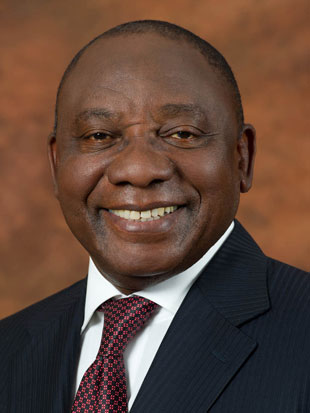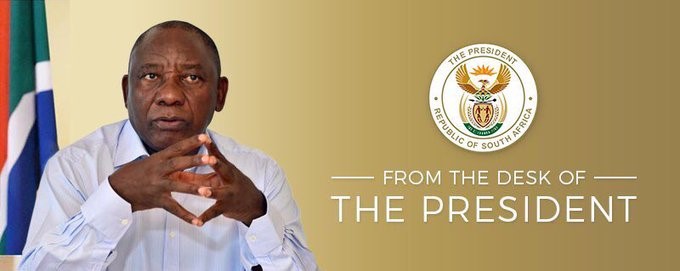 Dear Fellow South African,
Dear Fellow South African,
Our country’s exit from the Financial Action Task Force (FATF) grey list bodes well for the integrity and reputation of our financial system, for our status as an investment destination and for the economy as a whole.
The FATF is a global body that aims to tackle global money laundering and terrorist financing. In 2023, South Africa was put on its ‘grey list’ for falling short of certain international standards.
Just over two years since the FATF identified deficiencies that had rendered South Africa increasingly vulnerable to financial crimes, the dedication of a multidisciplinary team led by the National Treasury has culminated in our formal exit from the grey list.
In its statement, FATF welcomed the ‘significant progress’ South Africa has made in improving its anti-money laundering and countering terrorism financing regime, and called for these improvements to be sustained.
This milestone is a boost for South Africa’s international reputation and global standing. Grey listing results in a country being seen as risky for investors. The practical implications are that countries have greater difficulties obtaining credit and access to international financial services. There is reduced foreign direct investment and even capital outflows, and restrictions on cross-border transactions.
International investors seeking to do business in any country need assurance that its financial system is clean, transparent, robust and compliant with global standards.
The perception of increased risk affects citizens and businesses financially. The cost of living and doing business can increase as a result of a weakened currency. As international borrowing becomes more expensive for businesses and governments, there is less fiscal space for social spending and tax pressures increase. Investor hesitancy leads to less foreign direct investment, which in turn impacts job creation and sustaining existing jobs.
The impact of South Africa’s exit from the FATF grey list will reduce pressure on citizens, businesses and the government. Ultimately, the return of international financial confidence and a reduced risk perception will attract more foreign direct investment. As our currency strengthens, the cost of living for citizens and doing business will improve.
The far-reaching regulatory and institutional reforms we have instituted as part of the FATF process are a clear demonstration of South Africa’s commitment to improving the business and investor climate, and to ongoing reform.
The mandate of the Financial Intelligence Centre was expanded in 2022 when its founding legislation was strengthened to allow for more effective monitoring and detection of complex financial crime.
Legislative amendments have been made to enable for more stringent reporting regulations around beneficial ownership. This is so we know who ultimately owns, controls and benefits from a company, not just those who are listed as shareholders on paper.
These changes will make it much more difficult for individuals and syndicates to funnel the proceeds of their corrupt activities through complex webs of shell companies, trusts and companies owned by friends and relatives.
To close high-risk loopholes around terrorism financing, we have introduced regulatory amendments to enable the investigation and prosecution of such cases. We are committing more government spending to countering money-laundering and terrorism financing.
The state capture era led to a near hollowing out of state capacity and the weakening of key institutions involved in upholding the integrity of our financial system. But we are steadily rebuilding them.
Exiting the grey list demonstrates that our anti-money laundering system is beginning to act against corruption and other financial crimes. It lays the basis for further improvements. It is a signal of our collective determination to ensure that the malfeasance of the past is well behind us.
We will make sure that the FATF decision does not result in complacency but supports increased vigilance.
Much work remains to be done to reduce and prevent financial crimes, and ensure speedier investigations, prosecutions and convictions of those committing such crimes.
With the necessary regulatory frameworks in place, our focus must now be on improving and strengthening implementation. We will also sustain enforcement within both public and private institutions and deepen international collaboration.
With best regards,
Cyril Ramaphosa is the President of South Africa





